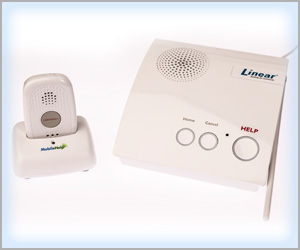Frequently Asked Questions
- Who Needs a medical alert system?
- Medical alert systems are for everyone! Depending on your needs, you can use a medical alert device if you are over the age of 65 and worried about falling in your home, if you live alone and are worried about being alone in an emergency, if you suffer from chronic illness or heart disease, if you have been to the emergency room in the past year for a fall/heart attack/stroke, if you are affected by limited mobility, or if you take medication that effects your balance or causes dizziness. If you’re in perfect health, you might just want to get a medical device to provide you with security and peace of mind while at home.
- Is the device only for medical emergencies?
- Nope! The device can be used in any emergency, including burglaries, fires, heart attacks, strokes and falls.
- How does the medical alert device work?
- In an emergency, you simply press the button on the pendant and within minutes you will be connected to an emergency service dispatcher. They will assess your situation and call for the help you need.
- What if I press the button but cannot talk, or the dispatcher does not hear
me?
- If that is the case, then the dispatcher will always err on the side of caution and send help to check on you.
- What if I fall in the shower--Is the button waterproof?
- Both of the Local Medical Alert Systems devices--the necklace and the bracelet--are waterproof. You can bathe, swim, and get stuck in the rain with them.
- Does it only come on a necklace?
- The device also comes on a bracelet, which looks like a wrist watch. The different options provide you with variation depending on your outfit or mood
- Can I trust the Monitoring Centers?
- Yes. All of the monitoring centers that Local Medical Alert Systems will find you are UL-certified, ensuring the highest standards for safety and reliability. All of the monitoring centers have 911/EMT trained operators, 24/7 service, ability to dispatch police, fire and paramedics, and have access to your medical history so that they are able to provide emergency responders with critical information in a timely fashion.

